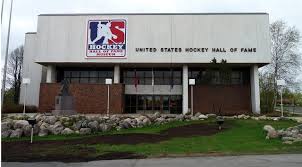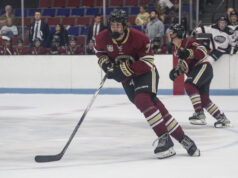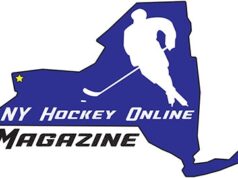| Dean Blais, Tony Granato, Jenny Potter and Jerry York to be enshrined |
| COLORADO SPRINGS, Colo. – Dean Blais, Tony Granato, Jenny Potter and Jerry York will be enshrined into the United States Hockey Hall of Fame as the Class of 2020, it was announced tonight by USA Hockey. “The Class of 2020 is an extraordinary group whose remarkable contributions to our game will be felt for generations to come,” said Jim Smith, president of USA Hockey. “As fans, we’ve had the great pleasure of watching them play or guide teams to championships at all levels of the game. We are thrilled to welcome Dean, Tony, Jenny and Jerry to the list of immortals who have so positively impacted our sport.” ABOUT DEAN BLAIS 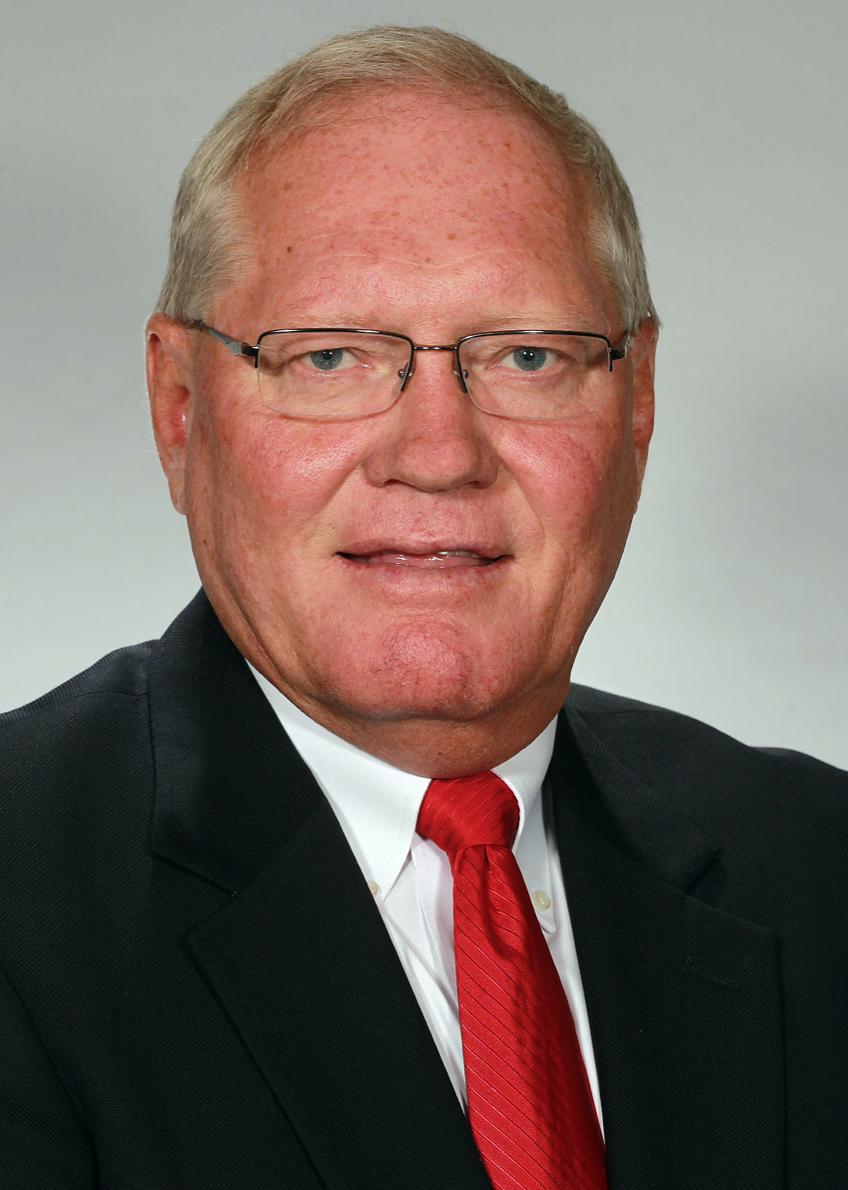 In a hockey life spanning some six decades, Dean Blais (International Falls, Minn.) cut a wide trail of lofty accomplishments through every level of the game.He is one of America’s most accomplished coaches, with his 40-year career behind the bench highlighted by leading teams to signature moments at the high school, junior and collegiate levels as well as on the international stage. In a hockey life spanning some six decades, Dean Blais (International Falls, Minn.) cut a wide trail of lofty accomplishments through every level of the game.He is one of America’s most accomplished coaches, with his 40-year career behind the bench highlighted by leading teams to signature moments at the high school, junior and collegiate levels as well as on the international stage. While perhaps lesser known, his playing days included championships at the University of Minnesota, a brief stint in professional hockey and selection to the 1973 U.S. Men’s National Team.Blais is perhaps most widely associated as a coach for the University of North Dakota, where he spent 19 seasons and is a member of the UND Athletics Hall of Fame. He was head coach of the Fighting Sioux program for 10 seasons (1994-2004) where he led UND to two NCAA titles (1997, 2000); seven NCAA tournament appearances, including three Frozen Fours; four Western Collegiate Hockey Association regular-season titles and two WCHA playoff championships. In his 10 seasons, Blais finished with a 262-115-33 record. And during his nine campaigns (1980-89) as an assistant coach with UND, he helped the team to a pair of national titles (1982, 1987) and a third-place finish in the 1984 NCAA Championship.He earned the Spencer Penrose Award as the top men’s collegiate coach on two occasions (1997, 2001) and was three times named WCHA Coach of the Year (1997, 1999, 2001). While at UND, Blais also played a major role in the development of the Ralph Engelstad Arena that opened in 2001 and is still regarded as one of the best hockey arenas in the world.Blais concluded his coaching career with an eight-year stint as head coach of the University of Nebraska Omaha men’s ice hockey team where he led the program to its first-ever NCAA Frozen Four appearance in 2015 and two NCAA Tournament berths overall. He finished with a 146-133-30 mark at UNO and is the school’s all-time winningest coach. In his 18-year run as a college head coach, Blais finished with a record of 407-246-84 with 14 winning seasons.Blais also thrived as a high school coach. In his two-year stint (1989-91) as head coach for the storied Roseau High School boys hockey program, he led the Rams to the Minnesota State High School League championship in 1990, a year he was honored as the state’s hockey coach of the year. The following season he guided the team to conference and regional championships. He moved to serve as athletic director and head boys hockey coach in his hometown of International Falls for two years (1992-94) where he led the Broncos to a conference title in 1993. His first-ever head-coaching job was a three-year stint (1977-80) leading the Minot (N.D.) High School boys hockey program where he coached conference champions and state tournament participants in both 1979 and 1980.Serving as an assistant coach for one season (1976-77) for the University of Minnesota men’s ice hockey team was Blais’ first-ever coaching stop and his career also included three years with the NHL’s Columbus Blue Jackets (2004-07) and two seasons as general manager and head coach for the USHL’s Fargo (N.D.) Force, where he guided the team to the Clark Cup Final in 2009 and was named the USHL Coach of the Year. On the international stage, Blais led the U.S. to its first-ever gold medal on Canadian soil in the 2010 IIHF World Junior Championship, and also served as head coach for U.S. entries in the World Junior Championship in 1994 and 2012, and was an assistant coach for Team USA in the event in both 1988 and 1989. In addition, he served as an assistant coach for the 1992 U.S. Olympic Men’s Ice Hockey Team and the 2000 U.S. Men’s National Team.As a player, Blais spent four seasons (1969-73) as a forward at the University of Minnesota and helped the Golden Gophers capture the 1970 WCHA regular-season championship, before earning the league’s playoff crown the following season and advancing to the NCAA title game. He averaged better than a point a game in his collegiate career, finishing with 139 points (56G, 83A) in 124 games. Following his senior campaign, he was selected to play for the U.S. Men’s National Team in the 1973 IIHF Men’s World Championship. Blais then spent the next three years (1973-76) with the Chicago Blackhawks minor league team in Dallas before embarking on his coaching career. ABOUT TONY GRANATO 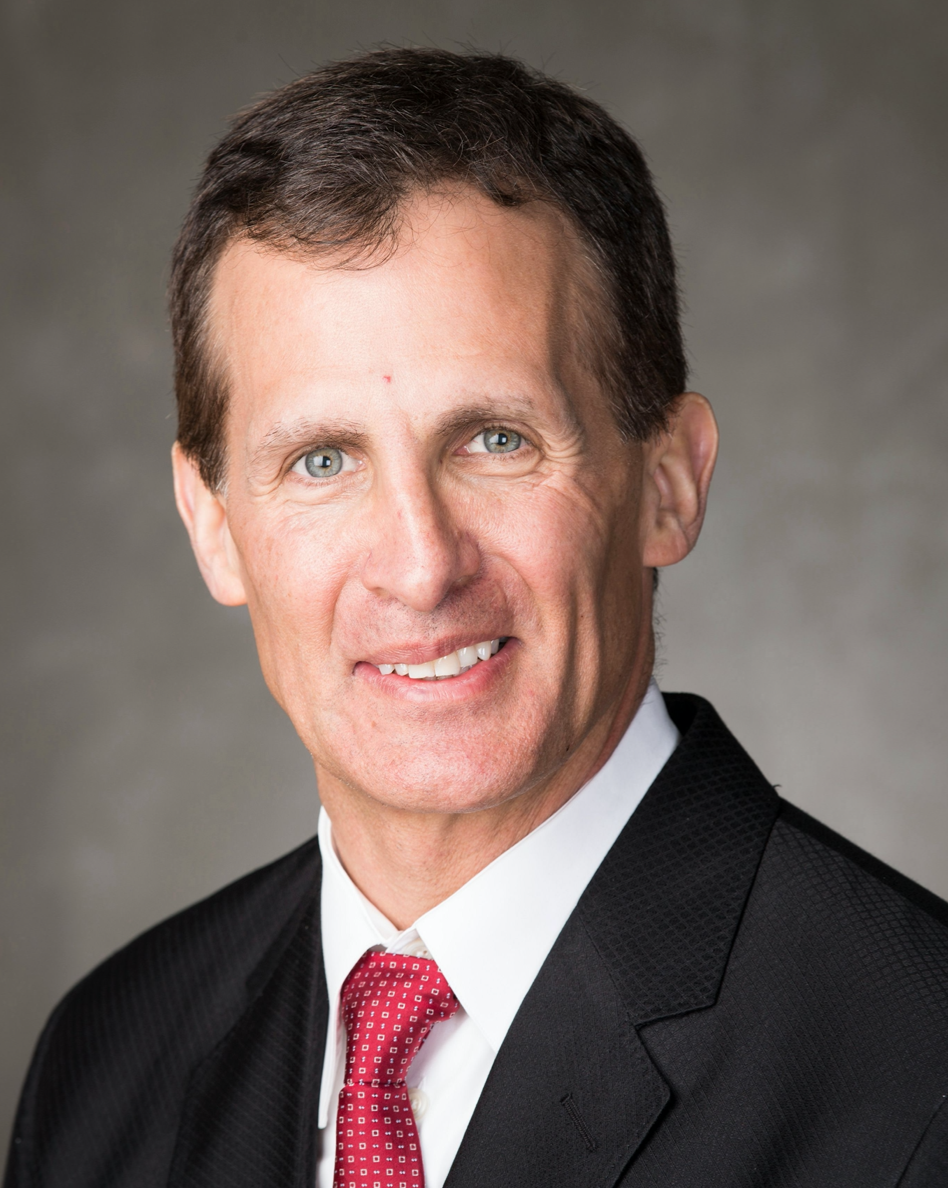 Tony Granato (Downers Grove, Ill.) not only had an exceptional playing career, but since his playing days has continued to make positive contributions to hockey as a coach at the NHL, collegiate and international levels. Tony Granato (Downers Grove, Ill.) not only had an exceptional playing career, but since his playing days has continued to make positive contributions to hockey as a coach at the NHL, collegiate and international levels.Granato played 13 seasons (1988-2001) in the NHL for three different teams, highlighted by four 30-goal seasons; helping the Los Angeles Kings to the Stanley Cup Finals in 1993; and scoring 36 goals in his first campaign (1988-89) with the New York Rangers, a club record for goals by a rookie that still stands today. Granato put up 220 points in a prolific four-year (1983-87) collegiate career at the University of Wisconsin, where he stands today fourth all-time in school history in points and third in goals (100). He was a two-time All-American for the Badgers and a finalist for the 1987 Hobey Baker Memorial Award following his 73-point senior season. A member of the UW Athletics Hall of Fame, Granato was named team MVP as a senior and also earned WCHA Student Athlete of the Year honors. Following his college career, Granato spent the 1987-88 season with the U.S. Men’s National Team and ultimately represented the U.S. in the 1988 Olympic Winter Games, one of seven times he donned the red, white and blue as a player on the international stage. His NHL debut came in 1988-89 with the New York Rangers where he made an immediate impact. Granato was named to the NHL All-Rookie Team after leading the Rangers in goals with 36 and contributing 63 points in total. In 1990, he was traded to the Los Angeles Kings where his prolific goal scoring was key in L.A.’s run to the Stanley Cup Finals in 1993. In January of 1996 he suffered a serious head injury that would require surgery, causing speculation he would not play again. Granato, however, defied the odds and returned to the ice in 1996-97 after being traded to San Jose, and not only earned the Bill Masterton Memorial Trophy that season, but played in the NHL All-Star Game in front of his hometown fans in San Jose. He retired following the 2000-01 season having played in 774 NHL regular-season games with 492 points, including 248 goals and 244 assists. He also played in 79 playoff games and contributed 43 points (16G, 27A).During his playing career, in addition to being named to the 1988 U.S. Olympic Men’s Ice Hockey Team, Granato also played for Team USA in the 1991 Canada Cup; in three IIHF Men’s World Championships (1985, 1986, 1987) and in two IIHF World Junior Championships (1983, 1984). Following retirement, Granato worked in the media for a brief time, but ultimately was called to coaching. He spent 13 seasons in the NHL as a head or assistant coach with 12 of those campaigns including winning records. Granato’s career included six seasons (2002-04; 05-09) behind the Colorado Avalanche bench, highlighted by two stints as head coach (02-04; 08-09) during which time he led the Avalanche to a 102-78-17 record, including a Northwest Division title in 2003 and two appearances in the Stanley Cup Playoffs. He went on to serve as an assistant coach for the Pittsburgh Penguins for five seasons (2009-14) where he helped the Penguins to playoff appearances in all five campaigns and at least 101 points in all but the lockout-shortened season of 2012-13. After two seasons as an assistant with the Detroit Red Wings (2014-16), Granato was named head men’s ice hockey coach at the University of Wisconsin, a position he continues in today. He was named the 2017 Big Ten Coach of the Year and was a finalist for the Spencer Penrose Memorial Award that year as national coach of the year. Granato has twice been involved at the highest levels of international hockey on the coaching front, serving as head coach of the 2018 U.S. Olympic Men’s Ice Hockey Team and an assistant coach for the 2014 squad. ABOUT JENNY POTTER 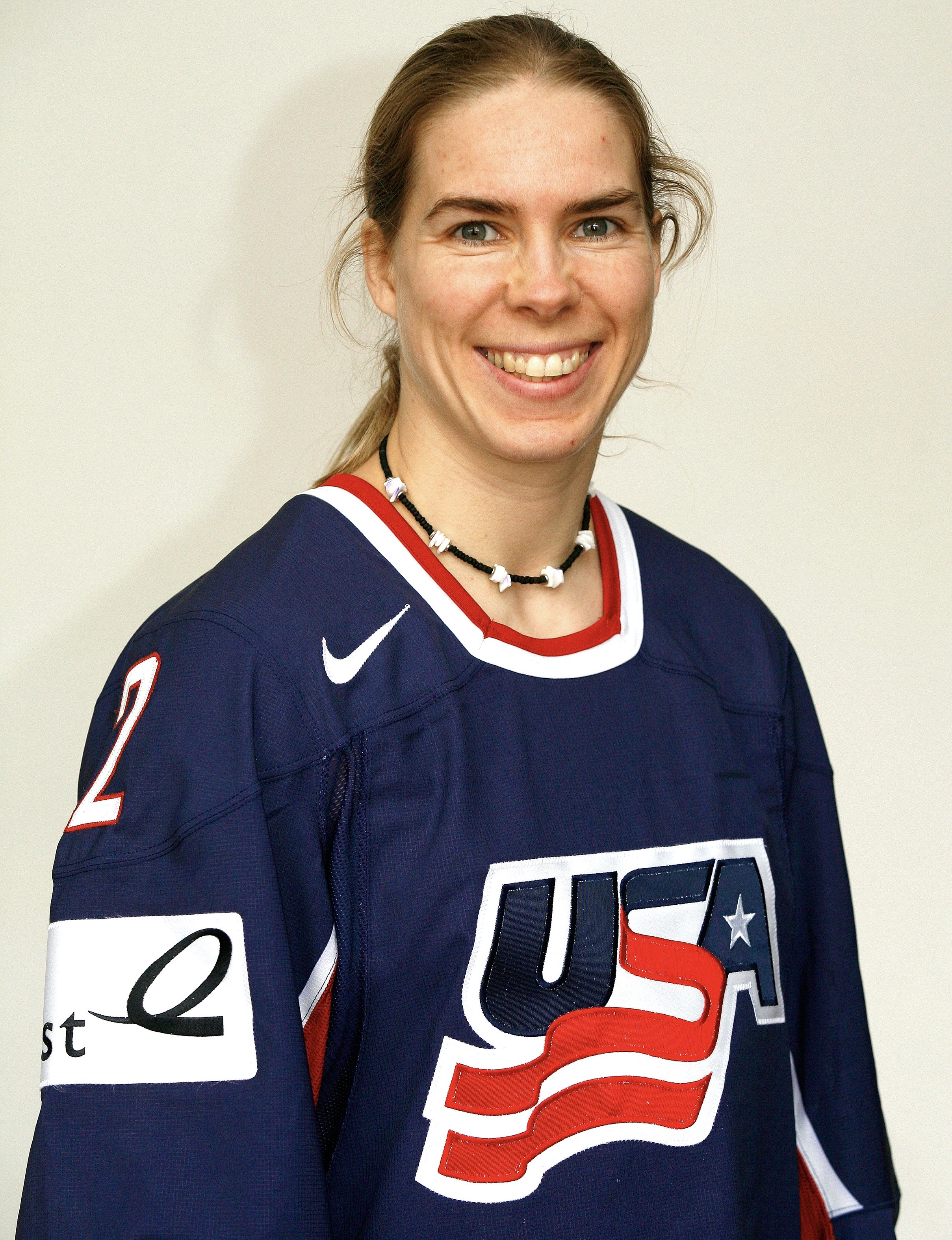 Jenny Potter (Edina, Minn.), a 14-time medalist on the international stage whose U.S. Women’s National Team career spanned 15 seasons, is one of the most decorated players in the history of women’s ice hockey in the United States. Jenny Potter (Edina, Minn.), a 14-time medalist on the international stage whose U.S. Women’s National Team career spanned 15 seasons, is one of the most decorated players in the history of women’s ice hockey in the United States.Highlighting her career were four appearances in the Olympic Winter Games, including helping Team USA to a gold medal at the 1998 Games in Nagano, Japan. She is one of only three U.S. women’s players to compete in four Olympics. Further, her 32 career points (11G, 21A) in Olympic competition are tops in U.S. history and second in the overall Olympic record books.Potter began her career with the U.S. Women’s National Team Program in 1997 during the lead-up to her first Olympics in 1998, where at 19 years-old, she contributed five points (2G, 3A) in helping the U.S. earn the first-ever gold medal awarded in women’s hockey in the Olympics. Just a year later, Potter led the International Ice Hockey Federation Women’s World Championship with 12 points (5G, 7A) in five games, earning her the Directorate Award for best forward and a spot on the Media All-Star Team. She played a key role in helping the U.S. capture its first-ever gold medal in the IIHF Women’s World Championships in 2005 as she registered six points (2G, 4A) in five games. During the U.S. gold medal run at the 2008 IIHF Women’s World Championship, she was named one of Team USA’s top three players and ranked second on the team with seven points. Potter went on to also help the U.S. to gold medals at the world championship in 2009 and 2011. All total, her 10 medals in world championship play are tied for the most-ever by a U.S. Women’s National Team player. In her other Olympic appearances, Potter recorded seven points (1G, 6A) in helping the U.S. to a silver medal in the 2002 Games in Salt Lake City, Utah, and had nine points (2G, 7A) in a bronze medal effort at the 2006 Torino Games. In her final Olympic appearance at the 2010 Vancouver Games, she had a team-leading six goals and her 11 points co-led the squad in helping the U.S. to a silver medal. She was named to the Media All-Star Team and later that season earned honors as USA Hockey’s Bob Allen Women’s Player of the Year. Potter, who also participated in 10 Three/Four Nations Cups during her time with the U.S. Women’s National Team, finished her career with 237 points (101G, 136A) in 204 games played.The mastery she displayed on the international stage transitioned with ease from her prolific collegiate career, which included recognition as an All-American in each of her four campaigns. Potter played one season with the University of Minnesota (1998-99) before finishing her final three years with the University of Minnesota Duluth (1999-00/2002-04).The two-time WCHA Player of the Year was a three-time finalist for the Patty Kazmaier Memorial Award and also a three-time All-WCHA First Team selection. She helped the Bulldogs to the 2003 NCAA Division I national championship, a year in which the team also earned both the WCHA regular-season and playoff titles. She averaged over two points a game in her three-year UMD career, finishing with a school-record 256 points (108G, 148A) in 102 games played. Potter was inducted into the UMD Athletic Hall of Fame in 2017.Potter also played professionally, including four seasons with the Minnesota Whitecaps (2006-09/10-11) and one year with the Boston Blades (2014-15). She helped the Whitecaps win the Western Women’s Hockey League championship in 2008-09, a year in which she tallied 36 points (16G, 20A) in 19 games and earned league MVP honors. Upon her retirement as a player, Potter went on to coach nine years of high school hockey in Minnesota, and served as head coach for two seasons at Trinity College and one season at Ohio State University. She continues to share her love and passion for the sport today, serving as a member of USA Hockey’s board of directors; as president and head coach of the Northeast Wisconsin Hockey Association; and as chief executive officer of Potter Performance Group/Jenny Potter Hockey. ABOUT JERRY YORK 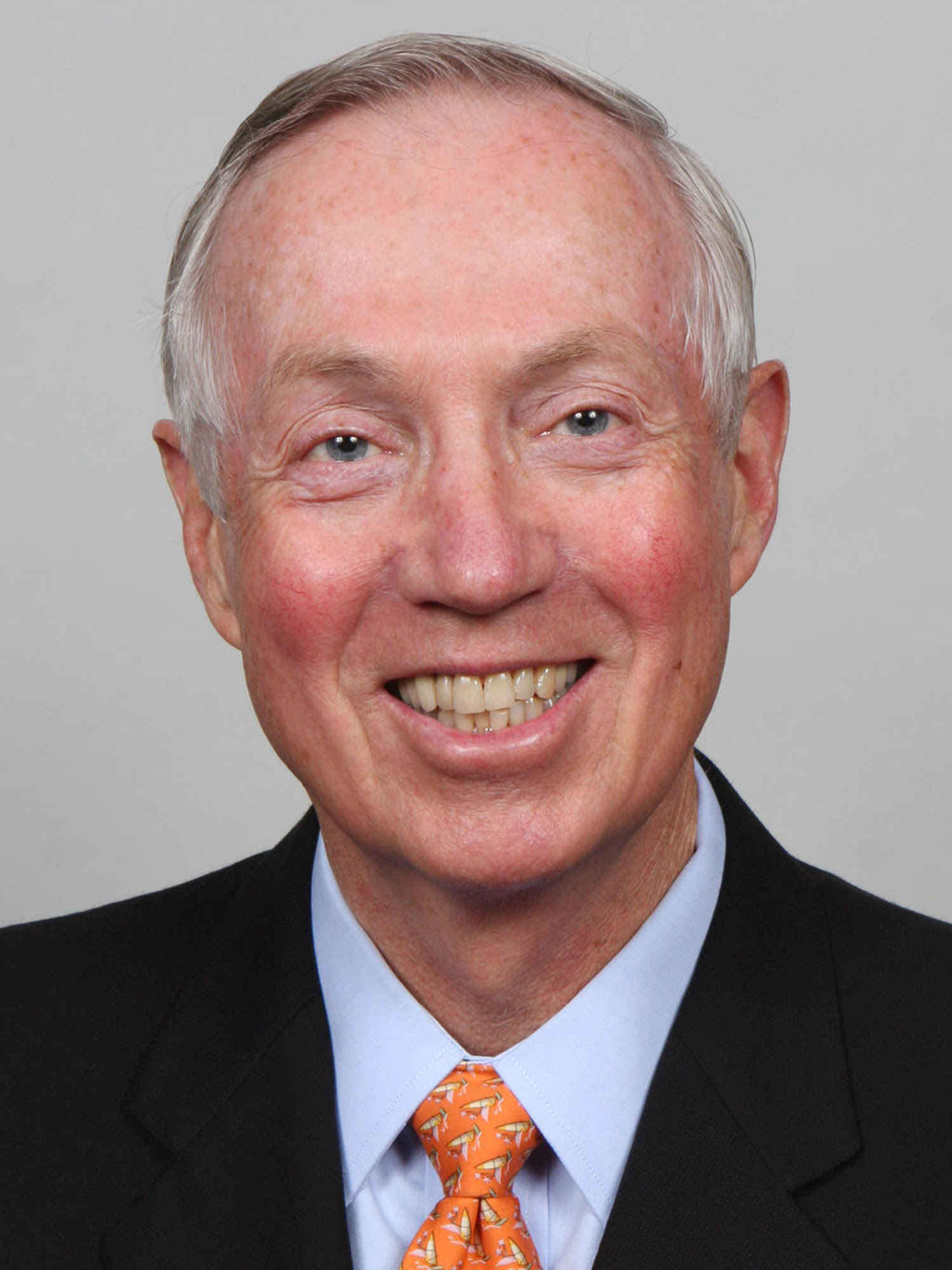 The winningest coach in college hockey history, Jerry York (Watertown, Mass.) continues today to leave an impact on American hockey that will positively affect the game for generations to come. The winningest coach in college hockey history, Jerry York (Watertown, Mass.) continues today to leave an impact on American hockey that will positively affect the game for generations to come.He enters his 49th season as an NCAA Division I head men’s ice hockey coach in 2020-21 and his 27th campaign guiding the Boston College Eagles, where he has led the program to four NCAA championships (2001, 2008, 2010, 2012), four national runner-up finishes, and 12 NCAA Frozen Four appearances. He is the NCAA’s all-time leader in NCAA Tournament wins.In addition, York’s teams have also seized 11 Hockey East regular-season titles and nine Hockey East Tournament titles. Over the course of his BC coaching career, York has guided his teams to winning records in 22 of his 26 seasons to date, including in 22 of the past 23 campaigns. He has coached two Hobey Baker Award winners and 18 NHL first round draft picks. York’s coaching career began with two seasons (1968-70) as a graduate assistant at his alma mater, Boston College, before moving to Clarkson University where he spent two campaigns as an assistant men’s ice hockey coach before taking over as head coach of the Golden Knights in 1972 as the youngest head coach in the nation at age 26. In his seven seasons as the bench boss for Clarkson, he led the team to six ECAC playoffs and claimed the 1977 ECAC regular-season title.On April 10, 1979, York took over as the men’s hockey head coach of Bowling Green State University where he spent the next 15 years. His term with the Falcons included an NCAA title in 1984, two Hobey Baker Award winners, six NCAA tournament berths, four CCHA regular-season titles, and a CCHA tournament title. York had an exceptional playing career at Boston College where he was a three-year letterman (1964-67) for the Eagles. He led BC to the 1965 Beanpot title and an NCAA runner-up finish. In his final campaign as team captain, York helped the Eagles to a 19-8 record and earned All-America First Team laurels. He was also named team MVP, a member of the All-New England team, and received the Walter Brown Award, which is presented annually to the best American-born college hockey player in New England. York concluded his college career with 134 points (64G, 70A) in 81 games played.The highly-decorated York has earned numerous honors over his career. Among the many highlights, he is enshrined in the Hockey Hall of Fame (2019), Bowling Green State University Athletic Hall of Fame (2003) and Boston College Varsity Club Hall of Fame (1982); was honored with the Lester Patrick Trophy in 2010; and earned the Spencer Penrose Award as the NCAA Division I Coach of the Year in 1977. He is the only coach in the history of NCAA hockey to win 1,000 or more games and one of just three coaches in NCAA history to lead two different schools to NCAA titles. NOTES: The formal announcement of the U.S. Hockey Hall of Fame Class of 2020 was done this evening by Eddie Olczyk on NBCSN’s NHL Live. Olczyk was enshrined into the U.S. Hockey Hall of Fame in 2012 … The U.S. Hockey Hall of Fame Class of 2020 will be formally enshrined together with the yet-to-be-named Class of 2021 at a formal Induction Celebration in December of 2021 … U.S. Hockey Hall of Fame inductees are chosen on the basis of extraordinary contribution to the sport of hockey in the United States … The U.S. Hockey Hall of Fame was incorporated in 1969 and inducted its first class in 1973 … The Class of 2020 will be the 48th installed to the U.S. Hockey Hall of Fame. To date, there are 187 enshrined members. For information on the members of the U.S. Hockey Hall of Fame, visit USHockeyHallofFame.com … The U.S. Hockey Hall of Fame Museum, located in Eveleth, Minnesota, is open daily. For hours of operation and admission prices, visit USHockeyHallMuseum.com or call 800-443-7825. |

